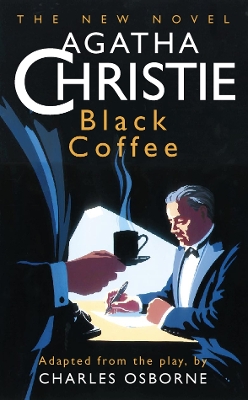Reviewed by brokentune on
Tweed? No, I cannot....no to Poirot in tweeds.
I am all in favour of fan fiction, especially when it is done well. Unfortunately, Black Coffee fell flat on so many counts.
What is, in my opinion, even worse is that the book was authorised, even commissioned, by Christie's estate. Subsequently it was published as part of the official Agatha Christie catalogue. This is just plain wrong.
Christie did write the play Black Coffee in 1929 to experiment with play-writing herself after stage adaptations of her previous books failed to impress her. However, I guess she must have had her reasons for not developing this particular story into a full novel - although many, many elements in the story do appear in later stories.
Or maybe Charles Osborne would just regurgitate the tricks and techniques of Dame Agatha's better known works to cover his lack of imagination? After all, he did write the book some 20 years after Christie's death.
My dismay at Agatha Christie Ltd and the publishers for allowing this book to be published as part of the official series is not, however, solely because it is so obvious that it was a financial decision to milk the franchise.
I'm disliking that this book should be the best available work of fan fiction and should be worthy of publication - especially when readers may pick this up and actually think it was written by Christie.
The obvious lack in sincerity in Osborne's portrayal of the characters is downright upsetting. So, not only does he make Poirot wear tweeds, but he also turns him into something that he is not. For all of Poirot's eccentricities, the Poirot Christie had created may have had high standards but he has always had some empathy with other people.
"An inveterate snob, he was already predisposed in Sir Claud’s favour by virtue of his title. If he were to be found in Who’s Who, a volume in which the details of Poirot’s own career could also be discovered, then perhaps this Sir Claud was someone with a valid claim on his, Hercule Poirot’s, time and attention."
No. Just, no.
Reading updates
- Started reading
- 4 April, 2015: Finished reading
- 4 April, 2015: Reviewed
